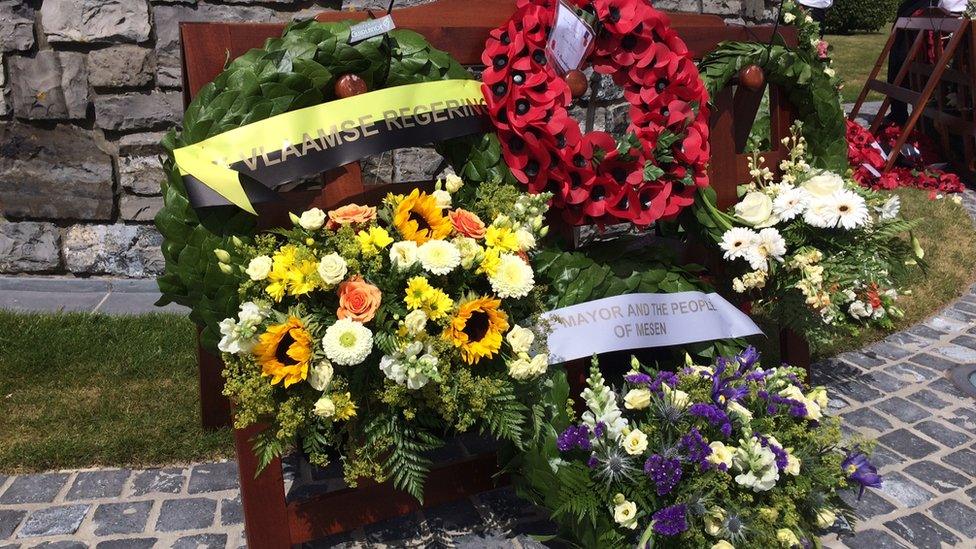Giant Bulford Kiwi chalk carving given protected status
- Published
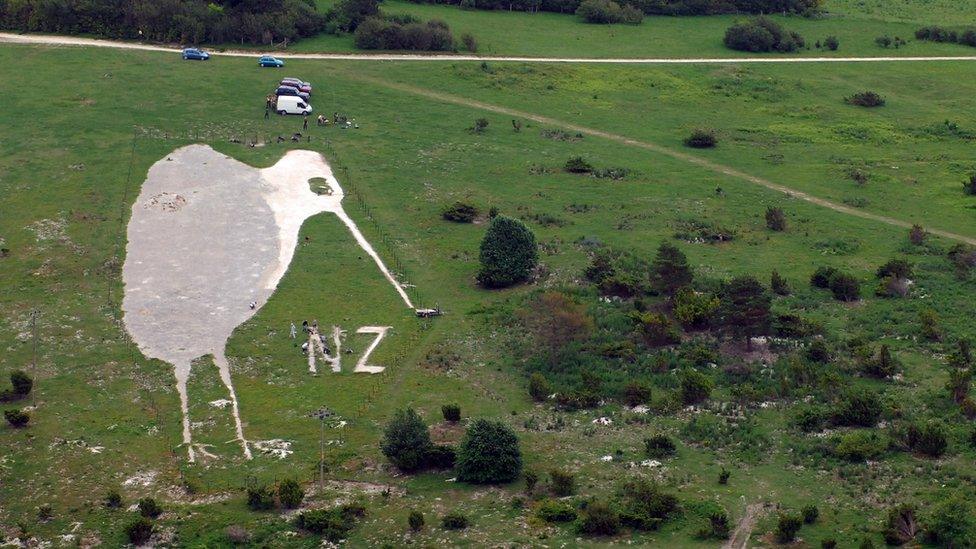
The Bulford Kiwi was carved by New Zealand troops at the end of World War One
A giant chalk carving of a kiwi has been granted protected status on the centenary of a World War One battle.
The 130m-tall (420ft) Bulford Kiwi, on Bulford Hill near Stonehenge, was carved by New Zealand troops who were stationed there.
The Department for Culture, Media and Sport has made it a scheduled monument on the advice of Historic England.
Kiwi soldiers played a significant role in the Battle of Messines, fought in June 1917 in Belgium.
Another monument at Cannock Chase in Staffordshire, marking the same battle, has also been granted protection.
The Terrain Model of Messines - a scale model of the battlefield - was made by German prisoners of war using soil, concrete, bricks and pebbles.
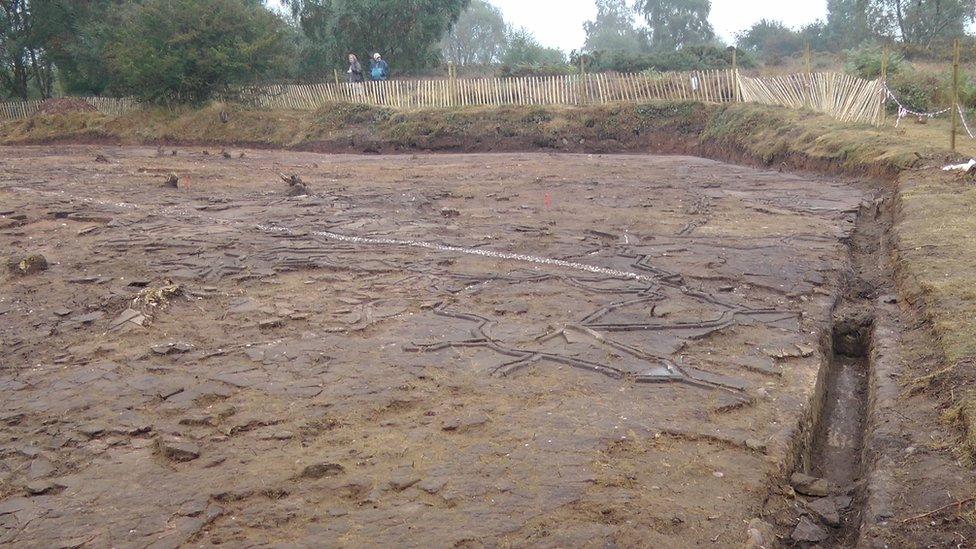
Terrain Model of Messines was a popular tourist attraction at the end of the war before it became neglected
The model was a popular tourist attraction at the end of the war, but it became neglected and was lost until it was recently excavated.
It has now been covered over again to protect it from damage and erosion.
Roger Bowdler from Historic England said: "These two monuments pay tribute to the bravery of New Zealand's fighting forces in the First World War and we are delighted that they are now being protected for the future.
"The Bulford Kiwi was cut into the chalk at the end of the war by Kiwi soldiers themselves, to mark the presence of their forces in England, and their achievements at the front.
"The taking of the Messines ridge was one of the war's most stirring attacks, and this model lay-out remains as testimony to the planning which made possible the victory.
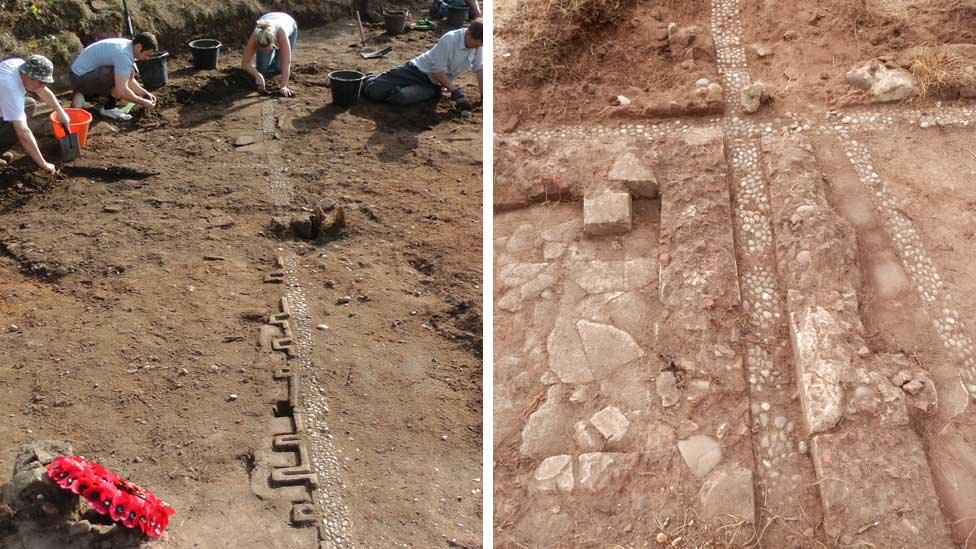
The model has now been covered over again to protect it from damage or erosion
"Like so much of our historic environment, these lasting reminders enable us to connect with lives and events from the past that made us who we are as a nation.
"One hundred years on, it is right to remember New Zealand's valour."
Sir Jerry Mateparae, New Zealand High Commissioner to the UK said: "It's fantastic to see Historic England protecting two very significant sites of huge importance for New Zealand.
"The special connections that were forged 100 years ago, with communities in the UK where New Zealanders trained, are still strong today and it's moving to see these sites protected for generations to come."
- Published21 April 2017
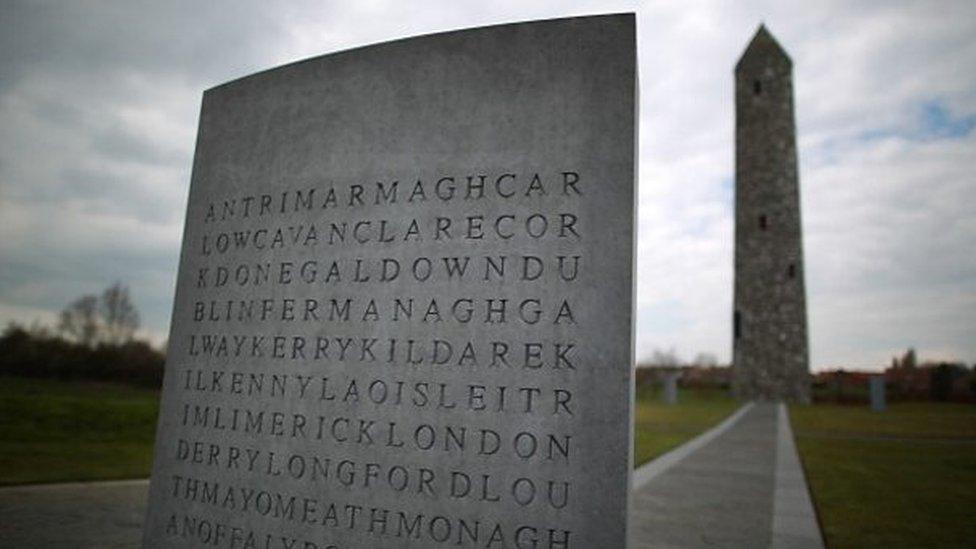
- Published7 June 2017
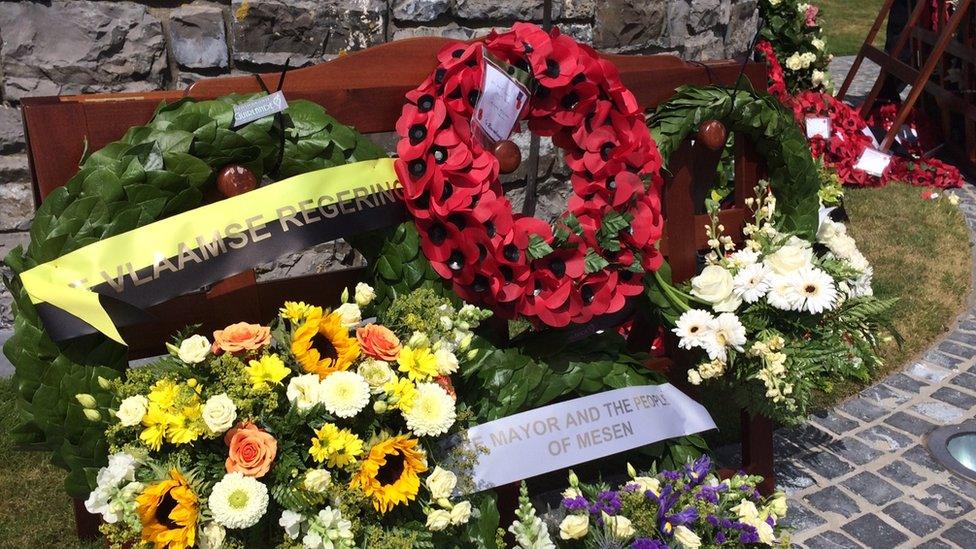
- Published8 June 2017
